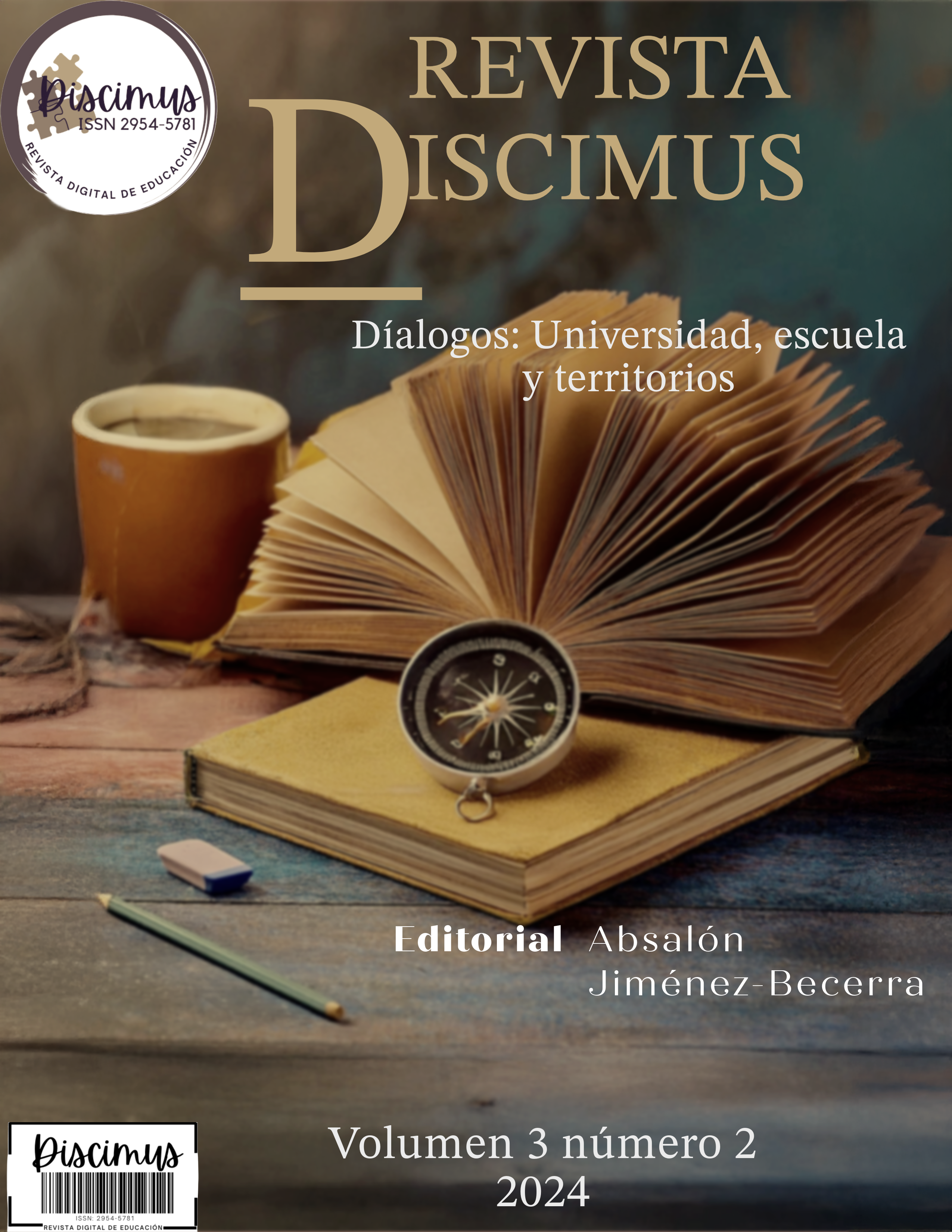Journey towards the Recognition of active Methodologies as a commitment to Inclusive Education.
Main Article Content
Abstract
This article delves into the fascinating systematization of experiences in the municipality of Sopó, Cundinamarca, focusing on the work of the teachers of the Departmental Educational Institutions (IEDs) La Violeta and Pio X (Gabriel). Here, interdisciplinary construction comes to life through active methodologies that not only seek to foster motivation in the classroom, but also promote inclusive education. In this way, a narration of the process begins as a journey full of adventures and transformations in a unique context.
The journey begins with the exploration of emotionality and motivation in learning, recognizing the subjectivity of each student, which through meaningful encounters, gives rise to the project “Emotions exemplified from the game”, which highlights how the subject is transversalized by different factors and contexts. In this scenario, the teacher becomes an essential catalyst, introducing dynamics that awaken pleasure and interest in learning
As differences in learning styles are recognized, educators adapt their strategies, enriching pedagogical practices within the classroom. Thus, an interdisciplinary approach begins to be woven through five active methodologies, where this journey culminates in an approach that recognizes and values differences, allowing students to take a leading role in their own learning process; in this way, a meaningful educational environment is created, where each voice and experience become a fundamental part of the collective narrative through the podcast "Cold mornings of active discussion", evidencing the transformations from inclusive education and the perspective of the role of the special educator.
Downloads
Article Details
Section

This work is licensed under a Creative Commons Attribution-NonCommercial-ShareAlike 4.0 International License.
Open Access Policy at Discimus Journal
Discimus Journal is committed to the promotion of free circulation of scientific and academic knowledge, simultaneously ensuring appropriate acknowledgment for our authors while adhering to the ethical principles of scientific publishing. In alignment with this goal, Discimus publishes all its articles under the ATTRIBUTION-NONCOMMERCIAL-SHAREALIKE 4.0 INTERNATIONAL CC BY-NC-SA 4.0
How to Cite
References
Alonso, C. M., Gallego, D., Honey, P. (2012). Los estilos de aprendizaje. Procedimientos de Diagnóstico y Mejora. Ediciones Mensajero: Bilbao.
Carrillo, M., Padilla, J., Rosero, T., Villagómez, M. (2009) La motivación y el aprendizaje. Alteridad. Revista de educación, 4(2), 20-32.
Dueñas, M. (2002). Importancia de la inteligencia emocional: un nuevo reto para la orientación educativa. Educación XX1, No, 31, 77-96.
Gibbs, G. (2007). El análisis de datos cualitativos en Investigación Cualitativa. Ediciones Morata, S. L.
Jara, O. (2011). Orientaciones teórico - prácticas para la sistematización de experiencias. [Archivo PDF].
Muñoz, C; Piracoca, C. (2022). De Proyecto de vida a Sentidos de Vida: una propuesta pedagógica para la consolidación de la cultura inclusiva de los jóvenes del municipio de Sopó, Cundinamarca. [Tesis de Maestría, Universidad Pedagógica Nacional de Colombia].
Labrador, M. y Andreu, M. (2008). Metodologías Activas. Valencia: Editorial de la UPV
Renés, P. (2018). Planteamiento de los estilos de enseñanza desde un enfoque cognitivo-constructivista. Tendencias Pedagógicas. Revista UAM. (31), 47-67. https://doi.org/10.15366/tp2018.31.002
Rico Suárez, M., Pérez Torres, L., Jiménez Forero, J., Cubillos Prada, D., Marín Valencia, D., Prieto Robayo, E., Carreño Moreno, D., Molina Rubiano, O., Castro Aranguren, K., Urrego Barragán, J., Bello Beltrán, O., Burgos Sanabria, I., Piñeros Fernández, J., Sanabria Alarcón, S., Junca Martínez, I., Prieto Rivera, P., Rincón Preciado, O., Sánchez Carreño, J., Gaitán Bernal, G., Garnica Alfonso, M. (2020). Plan de desarrollo municipal. Sopó, Cundinamarca.
Skliar, C. (2002). Alteridades y pedagogías. o... ¿y si el otro no estuviera ahí? Revista Educação & Sociedade. 23(79), 85-123. 10.1590/s0101-73302002000300007
Suniaga, A. (2019). Metodologías Activas: Herramientas para el empoderamiento docente. Revista Tecnológica – Educativa docentes 2.0. 7(1), 65–80. https://orcid.org/0000-0002-8652-773X
Walsh, C. (2017). Pedagogías decoloniales, prácticas insurgentes de resistir, (re)existir, y (re)vivir. Serie pensamiento decolonial.
Yarza, A. 2005. Travesías: apuntes para una epistemología y una pedagogía de la educación especial en Colombia. Revista de Pedagogía, No, 76. Vol. XXVI.

